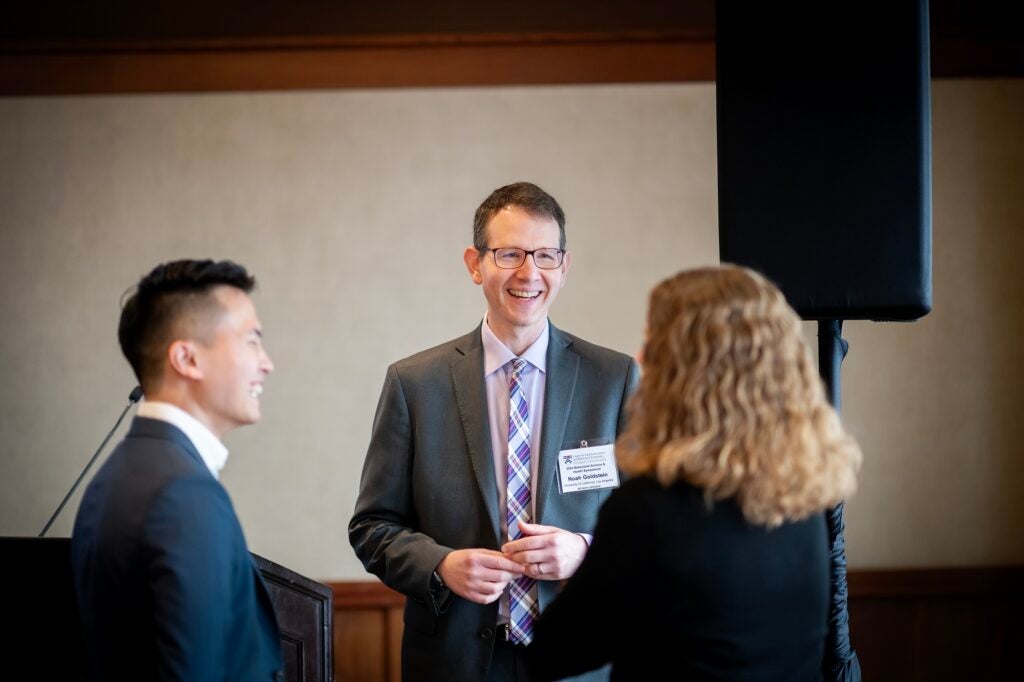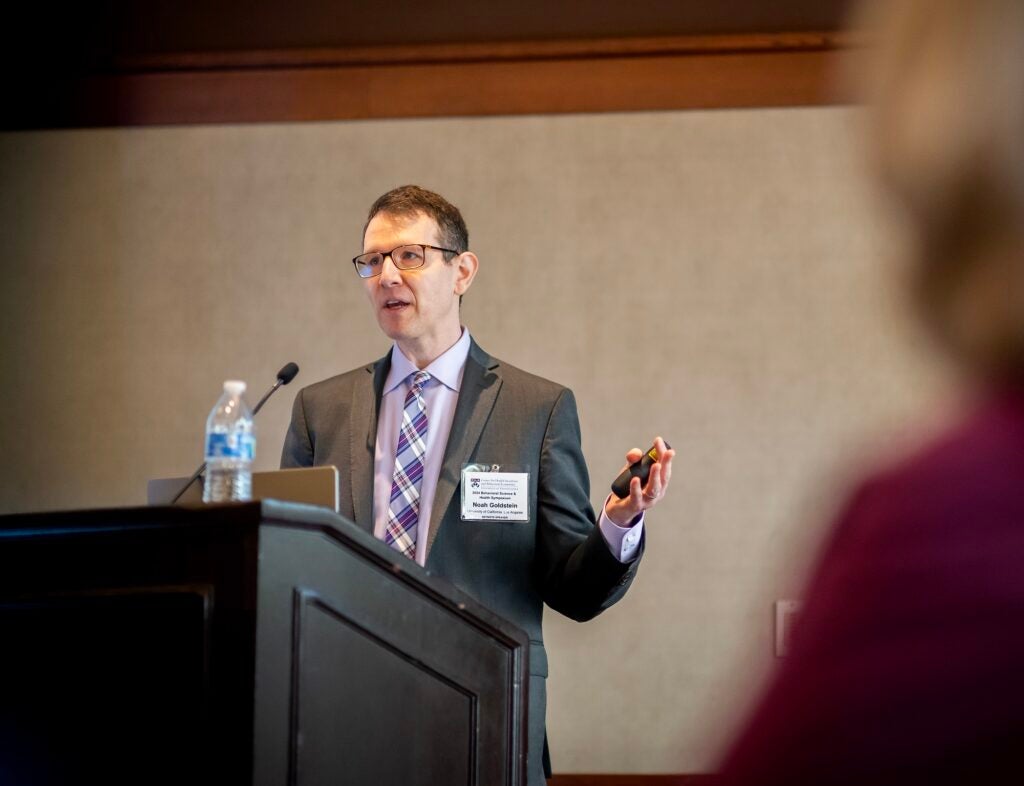Q&A with Dr. Noah Goldstein on social influences on provider and patient behavior

CHIBE recently welcomed Dr. Noah Goldstein, Ho-Su Wu Chair in Management, Psychology and Medicine at UCLA, as one of our keynote speakers at the Behavioral Science and Health Symposium. Read our Q&A with Dr. Goldstein to learn more about his talk and his research.
Your keynote at CHIBE’s Behavioral Science and Health Symposium was on social influences on provider and patient behavior: key insights, open questions, and wild speculations. What’s one takeaway you hope the symposium attendees have after listening to your talk?
I think one of the big takeaways is that when providing peer comparison feedback to physicians, comparing them to their best-performing peers seems to be successful at reducing inappropriate antibiotics and opioid prescriptions.
At the same time, other work shows that comparing to top performers can potentially backfire, so it’s clear more work needs to be done to better understand when these comparisons are likely to work or backfire.
You wrote a book called “The Small Big,” where you list small changes you can make to create a big impact. Do you have a favorite small change related to health care that you think can make a big impact for patients?
One of my favorites is a study led by my former MBA student, Nasim Asfar. We took an existing letter sent by UCLA Health to patients at high risk of colon cancer and applied some simple behavioral principles to it. This new letter increased the likelihood the patients got colon cancer screening by 24%. It took us only a few hours of our time to change the wording, yet my doctor colleagues tell me that this new letter, which is still used by UCLA today, undoubtedly has saved many lives.
What do you think are the most underestimated psychological triggers that influence people’s decision-making and how can individuals or organizations ethically harness these triggers to drive positive behavior change?
I think the most underestimated one is simply the power of descriptive norms, which is also sometimes referred to as Robert Cialdini’s principle of social proof: When we’re in a state of uncertainty, we tend to follow the behaviors of others. We’ve shown time and time again how powerful messages employing this principle can be, yet some of our prior research shows that when you ask people what influences their behaviors, other people’s behavior ranks at or near the bottom of their list.
In some ways, that might be part of the power of descriptive norms—if people don’t think they’ll be influenced by messages about similar others’ behavior, they may not actively resist such messages.
